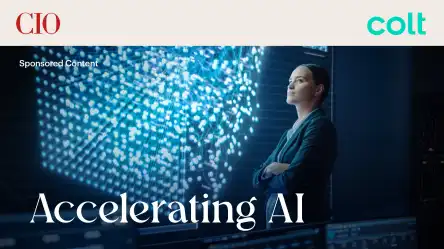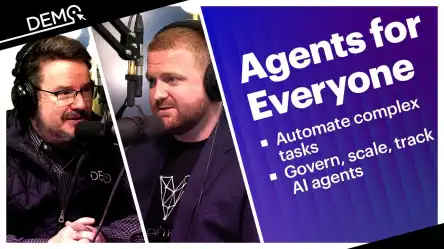The automation of repetitive tasks is restructuring the IT profession. CIOs must focus on a career development strategy that helps staff gain the higher-level skills they need.

Ask any CIO about AI and you’ll likely be told it’s great at picking up repetitive, lower-level tasks. From IT support and operational alerts, to software development, generative and agentic AI systems are automating tasks so professionals can focus on higher-value functions.
“Technology is always evolving, and automation has been with us for a long time,” says Ankur Anand, CIO at technology and talent solutions provider Nash Squared. “However, AI has brought an unprecedented shift in the pace of change.”
Such is the speed of business transformation that worldwide spending on AI is forecast to total nearly $1.5 trillion by the end of the year, according to Gartner, and is expected to exceed $2 trillion next year. While all sectors are feeling the impact of AI, PwC’s 2025 Global AI Jobs Barometer suggests the IT industry leads AI adoption, and will require fewer workers as emerging technology streamlines operations.
Evidence suggests this restructuring is already underway. Stanford University researchers report in a paper on the effects of AI that entry-level software engineering roles for workers aged 22 to 25 have declined nearly 20% from their 2022 peak. The New York Federal Reserve Bank, meanwhile, reports that unemployment rates for computer engineering and computer science graduates are 7.5% and 6.7% respectively.
In their report, PwC researchers suggest this restructuring masks a deeper transformation in the IT industry. Companies are moving away from generalist roles and toward highly specialized, AI-literate talent. The result is a more focused IT workforce that’s smaller in proportion but critical to the digital economy.
That sounds like great news for the in-demand specialists who possess the right skills to help businesses exploit AI. However, IT professionals have traditionally honed their skills in entry-level positions. If we automate increasing numbers of tasks, are we in danger of pulling up the career ladder for digital talent?
Orla Daly, CIO at technology specialist Skillsoft, recognizes the scale of the conundrum. “My first reaction is that it’s probably no longer a career ladder, it’s more like a lattice of connected ropes,” she says. “From talking to my peers, I’d say we’re going to see flatter hierarchies as we go forward.”
The priority now is for CIOs to ensure the introduction of automation today doesn’t become tomorrow’s IT management headache. They must recognize the potential impact of AI on workplace roles, develop the higher-level skills required in the future, and create a career development strategy for their staff.
Understanding the impact of AI on workplace roles
Fausto Fleites, VP of data intelligence at Scotts Miracle-Gro, says maintaining an IT career ladder is a hot topic. While some believe AI tools such as vibe coding sound a death knell for traditional roles, Fleites says AI-enabled changes must be set in context.
“Vibe coding is extremely useful,” he says. “As well as for traditional software engineering, I think AI is maturing in the data science space. When we’re trying to analyze data sets, my team does a lot of SQL queries, and sometimes it’s repetitive. Instead, you can say to AI, ‘Okay, do this for me.’ In these instances, AI makes you more productive.”
But it’s not all good news. Fleites recognizes it’s early days for enterprise AI. One of the biggest issues commonly cited by experts is the risk of hallucinations. Passing work to emerging technologies might help to reduce the strain on IT professionals, but expecting AI to work in isolation is dangerous.
“If you don’t have experience in coding, you don’t know that a model is hallucinating, and you don’t know how to correct it,” he says. “We need to see how AI evolves. AI might get to a stage where we can fully trust it, but now, it’s not close. And in the meantime, I think we’ll still need some experienced coders.”
So while AI will likely change the nature of work, businesses can’t afford to assume the end is near for IT professionals. As more workplace tasks are automated, digital leaders must keep talented humans in the loop to oversee systems. Fleites says organizations should consider how they skill up a cadre of lower-level professionals to become agent managers.
“If we look at the future of work, with AI-enabled copilots doing the repetitive tasks, it’s going to highlight the need for more critical thinking and emotional intelligence,” he says. “IT professionals will need to learn coding in a way where they don’t need to learn the mundane things done by AI, and they focus on business-focused qualities instead.”
Developing higher-level skills
Kenny Scott, data governance consultant at energy specialist EDF Power Solutions, also believes there’ll be a rise in the importance of softer skills at the expense of more traditional capabilities. He suggests the data quality analyst role could decline as agents become more effective when trained on KPIs. Scott’s message is clear: as AI takes hold, talented human experts will remain important, but in different ways.
“While the pure engineering side of IT is something that will reduce, it’ll never disappear,” he says. “The key to success now is to skill yourself up in looking at how to use AI and agents to deliver outputs, because businesses still need someone to bring everything together. It’s just that they’re going to require one person instead of 10.”
Skillsoft’s Daly is another digital leader reticent to proclaim the demise of the developer. There’ll still be a need for talented IT professionals, but the key elements of their roles will change. For example, she suggests IT professionals will spend more time checking that code written by AI is fit for purpose.
More generally, she adds it’s hard to state with any degree of certainty which roles will wane in significance, and which will rise to prominence. Her advice to IT professionals is to scan the market and look for emerging trends, particularly within your own enterprise.
“We just don’t know what the future is going to bring, so try to learn different things,” she says. “Break everything down to skills. If you understand core skills, you can stitch capability together in different ways, depending on the needs of the organization at a point in time.”
It’s also important to recognize the impact of AI beyond the traditional IT profession. Sacha Vaughan, chief supply chain officer at houseware manufacturer Joseph Joseph, is focused on creating a data-enabled approach to product fulfillment. Her organization is exploring how emerging technologies like AI might form part of this approach. Like other business leaders, she refers to the importance of business skills in an era of increased automation.
“The career ladder will be maintained, but the skillset will be different because we’ll be pointing and directing AI,” she says. “The skills we teach for entry-level roles will need to change to consider questions like, ‘How do I train my language model to answer customer questions effectively?’, so the AI is authentic to our brand voice.”
Creating a career development strategy
Gro Kamfjord, head of data at paint manufacturer Jotun, is another executive who points to the importance of next-gen talent. Young people entering her organization have experiences that might once have seemed unlikely, including broad knowledge of Python and AI, so companies should create a career development strategy that exploits this capability.
“If you invest in new people coming in, and let them try things, they can climb the ladder quickly,” she says. “I don’t believe in doing boring, repetitive work for a couple of years before you’re allowed to take charge yourself. Bring people on, expect them to take responsibility, and challenge them to contribute at an early stage of their careers.”
That’s an approach that chimes with Anand at Nash Squared. He says it’s more important than ever that digital leaders are career enablers for their teams. Companies still need entry-level IT talent, but the focus of their work will shift from carrying out the grunt work themselves to monitoring and auditing the output of AI.
“There’s a mindset and skillset shift involved in becoming an agent manager,” he says. “Junior team members need a critical mindset to review the outputs and see where quality can be enhanced, such as ways to reduce false positives in AI-generated cyber alerts.” Training and development, he adds, will play a crucial role as well, so CIOs should ensure senior team members mentor junior colleagues to guide them in the skills they’ll need, including critical thinking, emotional intelligence, and communication. “As the divisions between activities blur through AI, these skills are increasingly important and will help people move up the IT career ladder,” Anand says.
For Scotts’ Fleites, the most critical issue will be how digital leaders identify the talent that excels in this new working environment. Identifying effective AI managers will be hard because most companies only have weeks of experience in agentic use cases rather than years. Fleites says the best strategy is to blend external and internal AI capabilities.
“I have key leaders who are extremely technical,” he says. “They have seniority in terms of machine learning, AI, and agentic AI, but we don’t have a large team, so we scale capability with contractors. That way, we’re able to get skilled people from agencies when we need to. But the know-how about architecture, business relationships, and where to go next with AI stays in-house, which is critical for knowing what you’re doing, and doing it right.”








